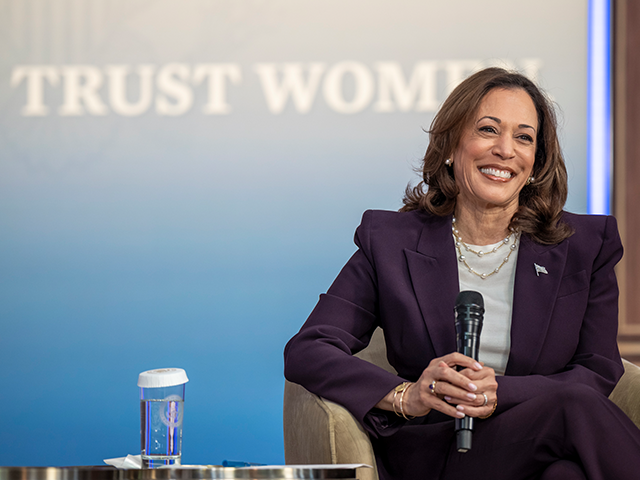Don’t Shrug Off the Kamala Surge
The Kamalanomenon is having a big impact on how people view their economic prospects, but you have to look at the data closely to see it.
The YouGov surveys conducted for The Economist began asking Americans in the middle of July how they saw their household’s financial prospects would fare one year from now. Given the depressed state of most surveys of consumer sentiment, you will not be surprised that just 22 percent said that they expect to be financially better off in a year.
Another 35 percent said they expect their household financial situation to be mostly the same. Twenty-two percent said they thought things would get worse. And twenty-two percent said they were not sure.
The most recent survey, conducted between August 4 and 6, found only small changes to those figures. Twenty-four percent said they think they’ll be better off, 20 percent said they expect to be worse off, 38 percent think things will be about the same, and 18 percent said they weren’t sure.
A Big, Hidden Partisan Shift in Economic Optimism
The relative stability in the shares of the pessimists and the optimists, however, masks some big changes in who is optimistic and who is pessimistic.
The mid-July survey found that one-third of people who said they intend to vote for Biden expected to be better off in a year. Forty-four percent of Biden supporters expected household finances to be about the same. Just 10 percent expected to be worse off.
Among Trump supporters, 19 percent said they thought they would be better off, 28 percent expected things to be about the same, and 33 percent expected to be worse off.
In the survey taken a week later, there was some movement. Trump supporters became more positive about their prospects. The share of Trump supporters expecting things to get better for their household rose to 24 percent. The share expecting their household finances to worsen fell 10 points to 22 percent.
The driver here was likely the collapsing chances of Biden being elected to a second term, culminating with his announcement that he was stepping down from the race and endorsing Kamala Harris. In the mid-July survey, 91 percent of Trump supporters said they expected Trump would win in November. By the third week of July, this was up to 95 percent. Among the broader public, the share saying they expected Trump would win rose from 49 percent to 52 percent.
There was already a building enthusiasm for Kamala Harris among Democrats, but it was not yet seeping into the views of Trump supporters. In mid-July, only 26 percent of voters said they expected Biden would win, including 63 percent of Biden supporters. By the third week of July, 31 percent of voters said they expected Harris would win, including 75 percent of self-declared Harris supporters.
Two weeks ago, the share of the broader public who expected Harris to win rose to 40 percent, and the share of Harris supporters who expected their candidate to win jumped to 80 percent. Donald Trump’s share of voters who expect him to win fell 10 points to 42 percent. Most notably, the share of Trump supporters who thought he would win fell to 87 percent—an eight point decline in a single week.
There was some movement in that survey from the final week of July in the household financial prospects question—but not much. The share of Harris supporters expecting to be better off was unchanged, and the share of Trump supporters expecting to be better off ticked down two points to 22 percent.
Harris Takes the Lead
The big shift happened in the most recent survey. Harris now leads among voters when it comes to who they think will win, at forty percent versus Trump’s 38 percent. Among Harris supporters, 81 percent say they think she will win. Among Trump supporters, 81 percent say they think he’ll win—down another six points from the survey one week prior and down 14 points over the past week. The once wide political optimism gap between supporters of Trump and his Democrat rival has closed.
In the new survey, just 15 percent of Trump supporters say they expect to be better off, a seven point decline. Forty percent of Harris supporters say they think they’ll be better off in a year, a six point increase.
In other words, Harris has inspired not just confidence in her supporters that she can get elected but also that her election will improve their household finances. Meanwhile, Trump supporters have lost confidence in their candidate’s prospects and their own financial prospects.
These big shifts show that the race for the president has dramatically shifted in recent weeks. It’s no wonder that has resulted in a surge in volatility both up and down in the stock market.

COMMENTS
Please let us know if you're having issues with commenting.